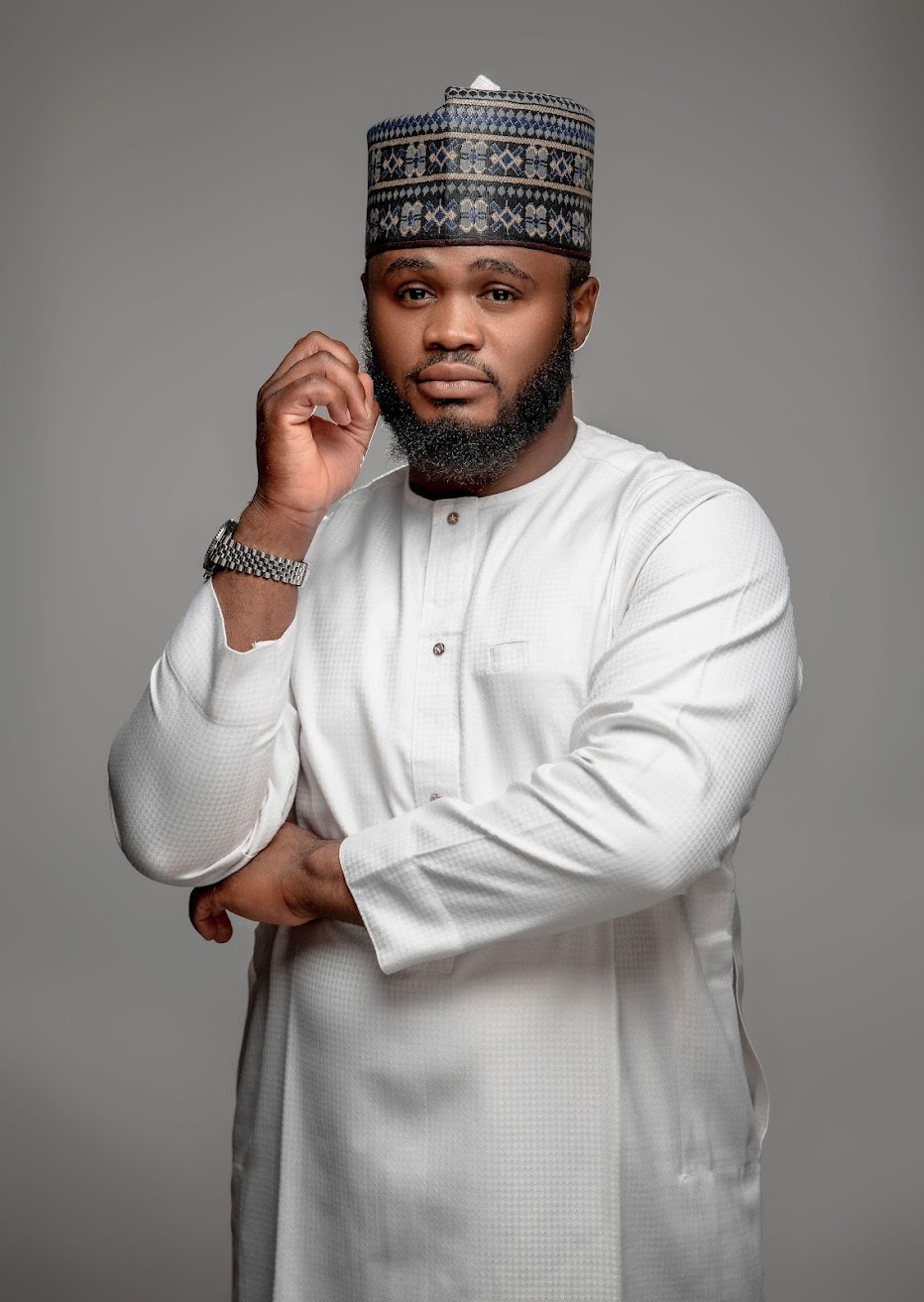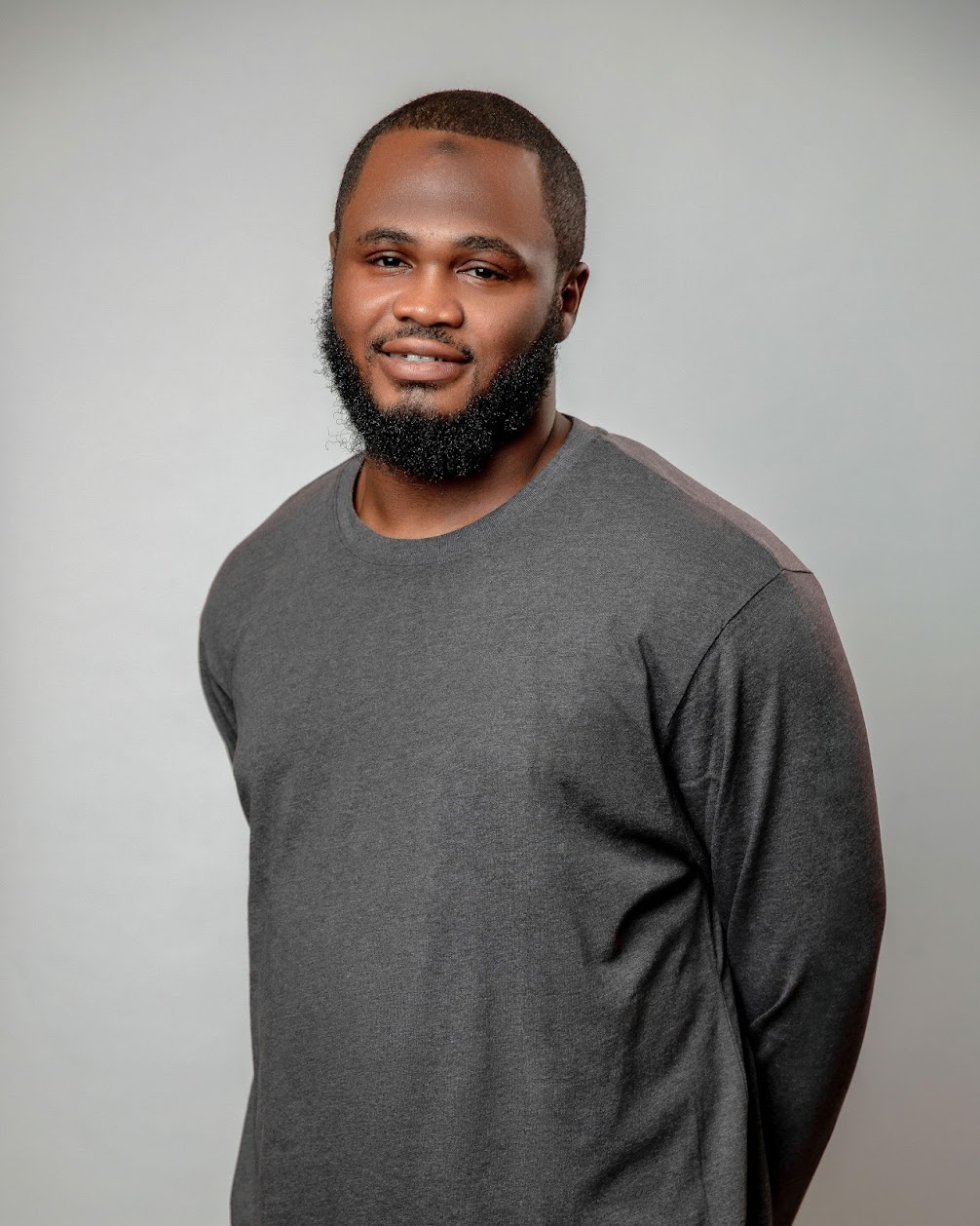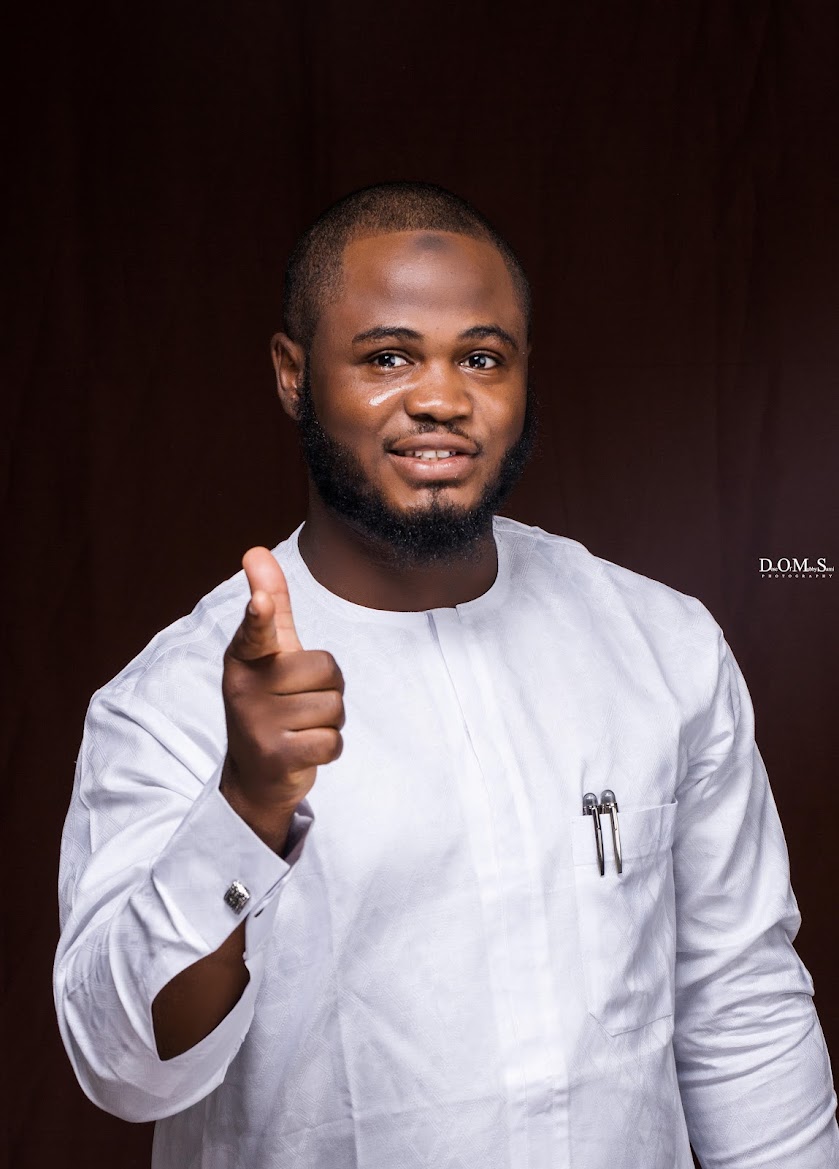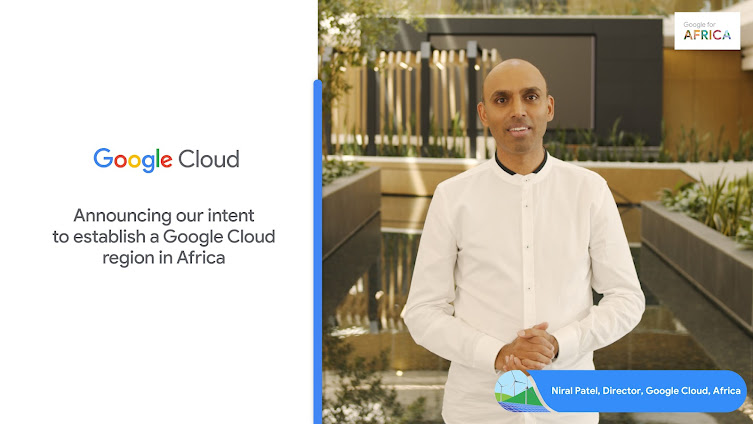Last year our CEO, Sundar Pichai, announced that Google would invest $1 billion in Africa over the next five years to support a range of initiatives, from improved connectivity to investment in startups, to help boost Africa’s digital transformation.
Africa’s internet economy has the potential to grow to
$180 billion by 2025 – 5.2% of the continent’s GDP. To support this growth, over the last year we’ve made progress on helping to enable affordable access and on building products for every African user – helping businesses build their online presence, supporting entrepreneurs spur next-generation technologies, and helping nonprofits to improve lives across the continent.
We’d like to share how we’re delivering on our commitment and partnering with others – policymakers, non-profits, businesses and creators – to make the internet more useful to more people in Africa.
Introducing the first Google Cloud region in AfricaToday we’re announcing our intent to establish a Google Cloud region in South Africa – our first on the continent. South Africa will be joining Google Cloud’s
global network of
35 cloud regions and 106 zones worldwide.
The future cloud region in South Africa will bring Google Cloud services closer to our local customers, enabling them to innovate and securely deliver faster, more reliable experiences to their own customers, helping to accelerate their growth. According to research by AlphaBeta Economics for Google Cloud, the South Africa cloud region will contribute more than a cumulative USD 2.1 billion to the country’s GDP, and will support the creation of more than 40,000 jobs by 2030.
Along with the cloud region, we are expanding our network through the Equiano subsea cable and building Dedicated Cloud Interconnect sites in Johannesburg, Cape Town, Lagos and Nairobi. In doing so, we are building full scale Cloud capability for Africa.
Supporting African entrepreneursWe continue to support African entrepreneurs in growing their businesses and developing their talent. Our recently announced second cohort of the
Black Founders Fund builds on the success of last year’s cohort, who raised $97 million in follow-on funding and have employed more than 500 additional staff since they were selected. We’re also continuing our support of African small businesses through the
Hustle Academy and
Google Business Profiles, and helping job seekers learn skills through Developer Scholarships and
Career Certifications.
We’ve also continued to support nonprofits working to improve lives in Africa, with a $40 million cash and in-kind commitment so far. Over the last year this has included:
- $1.5M investment in Career Certifications this year bringing our total Google.org funding to more than $3M since 2021
- A $3 million grant to support AirQo in expanding their work monitoring air quality from Kampala to ten cities in five countries on the continent;
- A team of Google employees who have joined the Tony Elumelu Foundation for 6 months, full-time and pro-bono. The team helped build a new training web and app interface to support the next million African entrepreneurs to grow and fund their businesses.
Across all our initiatives, we continue to work closely with our partners – most recently with the UN to launch the Global Africa Business Initiative (GABI), aimed at accelerating Africa’s economic growth and sustainable development.
Building More Helpful Products for AfricaWe recently announced plans to open the first African product development centre in Nairobi. The centre will develop and build better products for Africans and the world.
Today, we’re launching voice typing support for nine more African languages (isiNdebele, isiXhosa, Kinyarwanda, Northern Sotho, Swati, Sesotho, Tswana, Tshivenda and Xitsonga) in Gboard, the Google keyboard – while
24 new languages are now supported on Google Translate, including Lingala, which is spoken by more than 45 million people across Central Africa.
To make Maps more useful, Street View imagery in Kenya, South Africa, Senegal and Nigeria has had a refresh with nearly 300,000 more kilometres of imagery now helping people virtually explore and navigate neighbourhoods. We’re also extending the service to Rwanda, meaning that Street View is now available in 11 African countries.
In addition to
expanding the AI Accra Research Centre earlier this year, the
Open Buildings Project, which mapped buildings across the African continent using machine learning and satellite imagery, is expanding to South and Southeast Asia and is a great example of the AI centre creating solutions for Africa that are useful across the world.
Delivering on our promise We remain committed to working with our partners in building for Africa together, and helping to unlock the benefits of the digital economy for more people by providing useful products, programmes and investments. We’re doing this by partnering with African organisations, businesses and entrepreneurs. It’s the talent and drive of the individuals in the countries, communities and businesses of Africa that will power Africa’s economic growth.
Posted by Nitin Gajria, Managing Director, Google Africa
--------
Respecter notre engagement d'un milliard de dollars en Afrique
L'année dernière, notre PDG, Sundar Pichai, a annoncé que Google investirait 1 milliard de dollars en Afrique au cours des cinq prochaines années pour soutenir toute une série d'initiatives, allant de l'amélioration de la connectivité à l'investissement dans les startups, pour aider à stimuler la transformation digitale de l'Afrique.
L'économie Africaine de l'internet pourrait atteindre
180 milliards de dollars d'ici 2025, soit 5,2 % du PIB du continent. Afin de soutenir cette croissance, nous avons progressé au cours de l'année dernière en aidant à permettre un accès abordable et en créant des produits pour chaque utilisateur Africain – en aidant les entreprises à développer leur présence en ligne, les entrepreneurs à développer des technologies de nouvelle génération, et les organisations à but non lucratif à améliorer les conditions de vie sur le continent.
Nous aimerions partager la manière dont nous respectons notre engagement et dont nous travaillons en partenariat avec les autres - les décideurs politiques, les organisations à but non lucratif, les entreprises et les créateurs - pour rendre l'internet plus utile à un plus grand nombre de personnes en Afrique.
Présentation de la première région Google Cloud en AfriqueNous annonçons aujourd'hui notre intention d'établir une région Google Cloud en Afrique du Sud - notre première sur le continent. L'Afrique du Sud rejoindra le
réseau mondial de Google Cloud, qui compte 35 régions cloud et 106 zones dans le monde entier.
La future région cloud en Afrique du Sud rapprochera les services Google Cloud de nos clients locaux, leur permettant d'innover et d’offrir en toute sécurité des expériences plus rapides et plus fiables à leurs propres clients, contribuant ainsi à accélérer leur croissance. Selon une étude réalisée par AlphaBeta Economics pour Google Cloud, la région cloud de l'Afrique du Sud apportera une contribution cumulée de plus de 2,1 milliards de dollars au PIB du pays et favorisera la création de plus de 40 000 emplois d'ici 2030.
Parallèlement à la région du cloud, nous étendons notre réseau par le biais du câble sous-marin Equiano et la construction de sites d'Interconnexion Dédiés au Cloud (Dedicated Cloud Interconnect) à Johannesburg, au Cap, à Lagos et à Nairobi. Ce faisant, nous mettons en place une capacité de Cloud à grande échelle pour l’Afrique.
Soutenir les entrepreneurs Africains
Nous continuons à soutenir les entrepreneurs Africains dans la croissance de leurs entreprises et le développement de leurs talents. Notre deuxième cohorte du
Fond des Fondateurs Noirs (Black Founders Fund), annoncée récemment, s'appuie sur le succès de la cohorte de l'année dernière, qui a levé 97 millions de dollars en financement complémentaire et a employé plus de 500 personnes supplémentaires depuis sa sélection. Nous continuons également notre soutien aux petites entreprises africaines par le biais de la
Hustle Academy et des
Profils Commerciaux Google (Google Business Profiles), et nous aidons les demandeurs d'emploi à acquérir des compétences grâce à des Bourses d'Etudes pour Développeurs (Developer Scholarships) et aux
Certificats de Carrière (
Career Certificates).
Nous avons également continué à soutenir les organisations à but non lucratif qui s'efforcent d'améliorer les conditions de vie en Afrique, avec un engagement en espèces et en nature de 40 millions de dollars à ce jour. Au cours de l'année dernière, cela a inclus :
- Un investissement de 1,5 million de dollars dans les Certifications de Carrière cette année, ce qui porte le financement total de Google.org à plus de 3 millions de dollars depuis 2021
- Une subvention de 3 millions de dollars pour soutenir AirQo à étendre ses activités de surveillance de la qualité de l'air de Kampala à dix villes dans cinq pays du continent;
- Une équipe de Googlers qui ont rejoint la Fondation Tony Elumelu pour 6 mois, à temps plein et pro-bono. L'équipe a contribué à la création d’une nouvelle interface web et d’une application de formation pour soutenir le prochain million d'entrepreneurs Africains à développer et à financer leurs entreprises.
Dans le cadre de toutes nos initiatives, nous continuons à travailler en étroite collaboration avec nos partenaires - tout récemment avec l'ONU pour lancer l’Initiative Mondiale pour les Entreprises en Afrique (Global Africa Business Initiative - GABI), qui vise à accélérer la croissance économique et le développement durable de l'Afrique.
Créer des Produits Plus Utiles pour l'AfriqueNous avons récemment annoncé notre intention d'ouvrir le premier centre Africain de développement de produits à Nairobi. Le centre développera et fabriquera de meilleurs produits pour les Africains et pour le monde entier.
Aujourd'hui, nous lançons la prise en charge de la saisie vocale pour neuf langues Africaines supplémentaires (isiNdebele, isiXhosa, Kinyarwanda, Sotho du Nord, Swati, Sesotho, Tswana, Tshivenda et Xitsonga) dans Gboard, le clavier Google - tandis que
24 nouvelles langues sont désormais prises en charge par Google Translate, dont le Lingala, qui est parlé par plus de 45 millions de personnes en Afrique Centrale.
Pour rendre les Cartes (Maps) plus utiles, l'imagerie Street View au Kenya, en Afrique du Sud, au Sénégal et au Nigeria a été rafraîchie avec près de 300 000 kilomètres d'images supplémentaires permettent désormais aux utilisateurs d'explorer virtuellement les quartiers et d'y naviguer. Nous étendons également le service au Rwanda, ce qui signifie que Street View est maintenant disponible dans 11 pays Africains.
En plus de l'expansion du
Centre de Recherche AI d'Accra (the AI Accra Research Center) plus tôt cette année, le Projet
Open Buildings, qui a cartographié les bâtiments du continent Africain à l'aide de l'apprentissage automatique et de l'imagerie par satellite, s'étend à l'Asie du Sud et du Sud-Est et constitue un excellent exemple de la création par le centre d’IA de solutions pour l'Afrique qui sont utiles dans le monde entier.
Respecter notre promesseNous restons déterminés à travailler avec nos partenaires pour construire ensemble l'Afrique et aider à faire profiter un plus grand nombre de personnes des avantages de l'économie digitale en fournissant des produits, des programmes et des investissements utiles. Pour ce faire, nous travaillons en partenariat avec des organisations, des entreprises et des entrepreneurs Africains. C'est le talent et le dynamisme des individus dans les pays, les communautés et les entreprises d'Afrique qui alimenteront la croissance économique du continent.
Publié par Nitin Gajria, Directeur Général de Google Afrique


.jpg)
.png)






.jpg)









